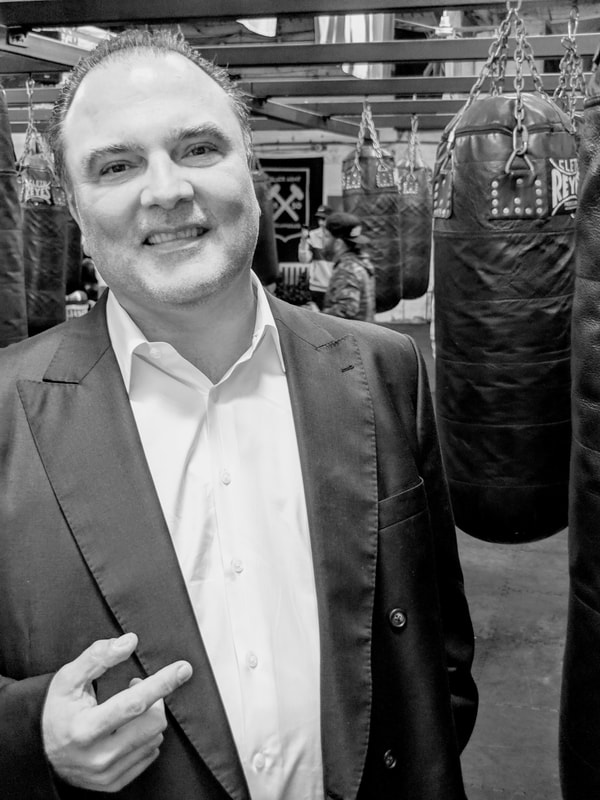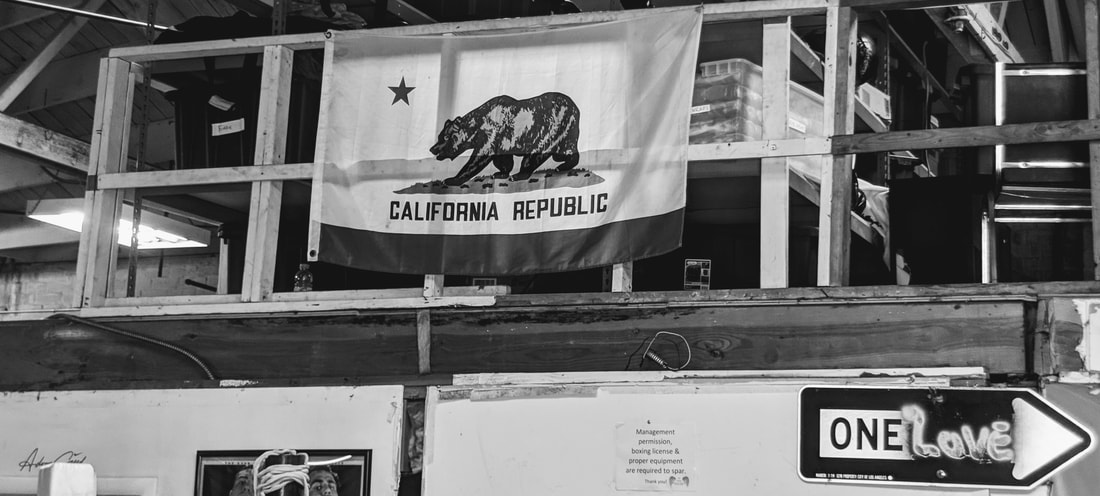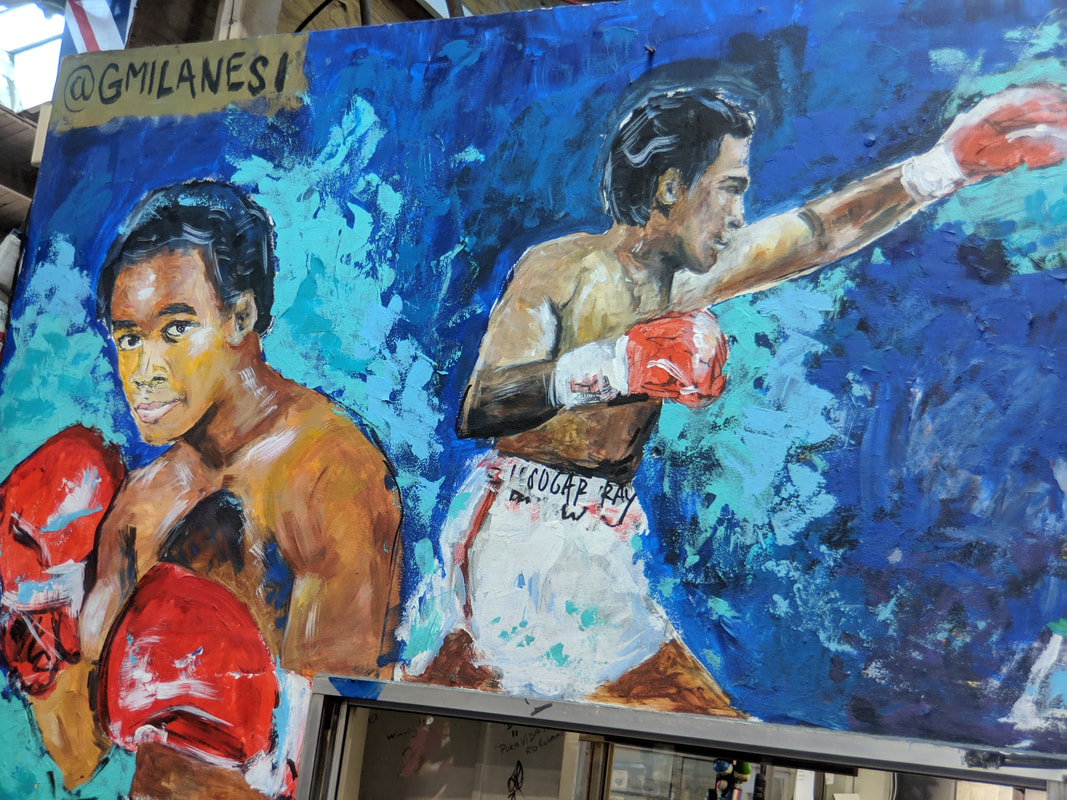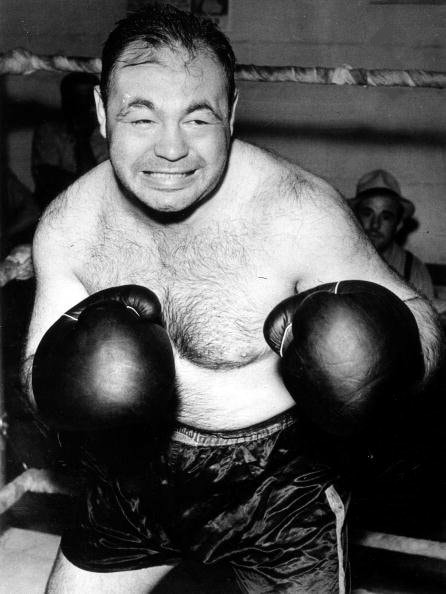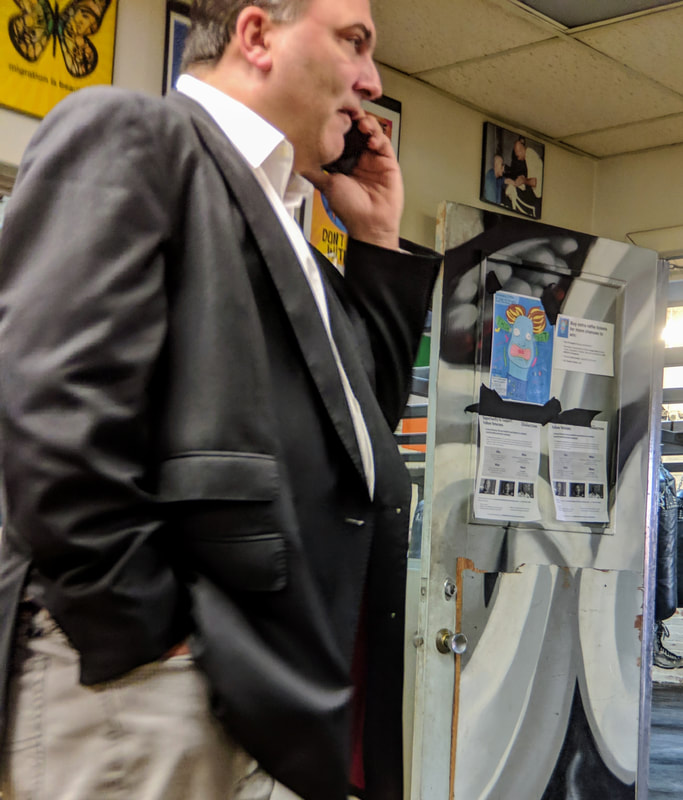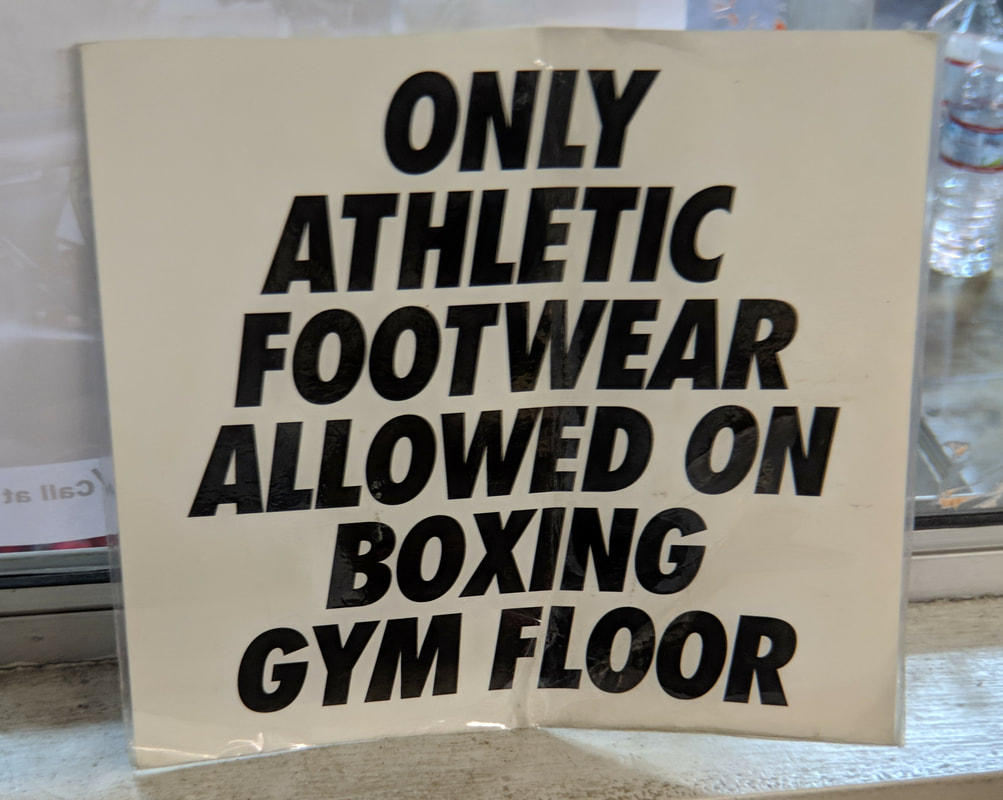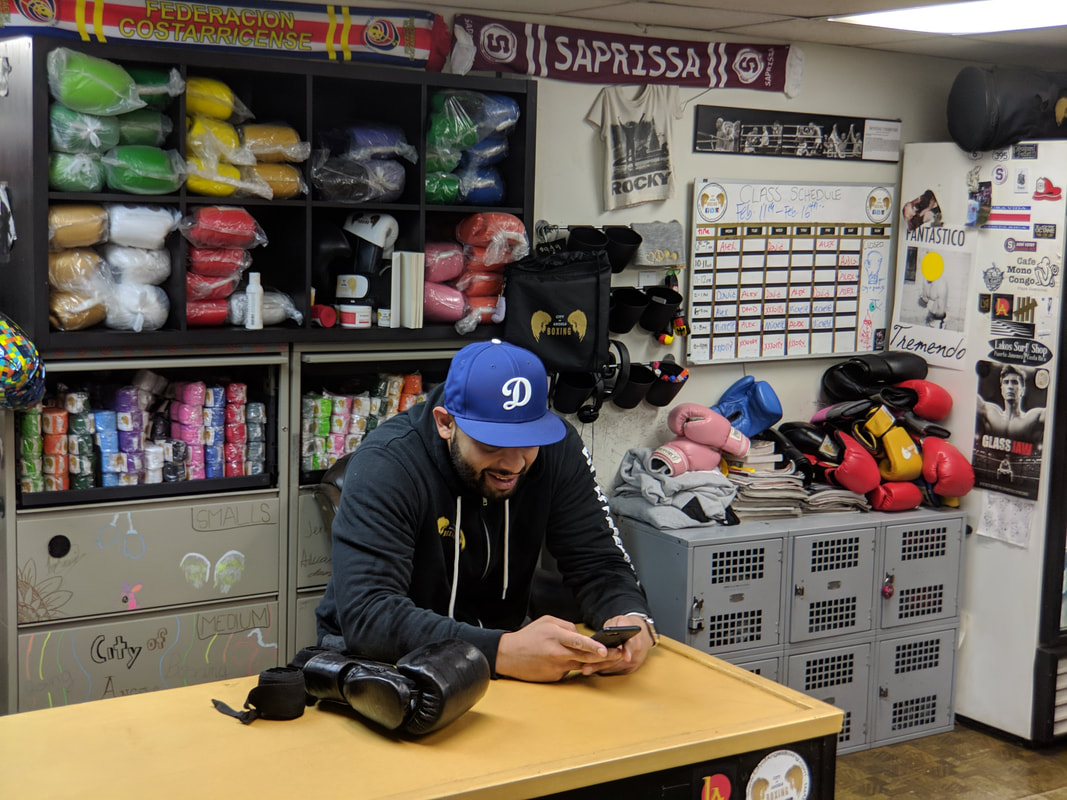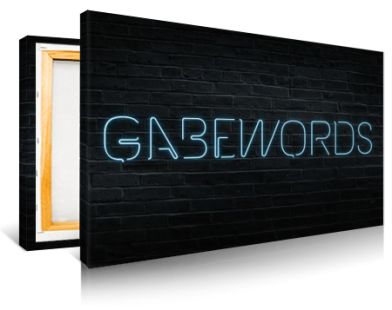|
The first time a Richard Schaefer appeared in the press to defend a highly controversial, perhaps unethical, industry-shaking move was in 1984. Schaefer was a spokesman for Loma Linda University Medical Center, and his task was to explain to the press the death of a 20-day-old baby born with a congenital heart defect -- which was deemed terminal immediately -- who received a heart transplant from a baboon as a medical experiment (which experiment failed for the most simple reason: the doctors didn't match the blood types of the donor and patient). That Richard Schaefer isn't the boxing CEO who 30 years later allowed fighters to forgo signing with the company he ran and make deals instead with an outside adviser -- a corporate self-sabotage that resulted in his firing (but also, on a theoretical level, differs little from airlines leasing Boeing or Airbus models from third parties for their fleets, which is common practice). But in combing through the archives I found that first tale so bizarre and upsetting, like a "Ripley's Believe It or Not" comic crossed with a History channel show on the Medieval medical practices of the alien architects of Stonehenge -- despite this having occurred in a decade when I was alive and in California of all states -- I had to include it. WTF? I am ashamed by the sensationalistic impulse that impelled me but not enough to change course. _____________ If you're reading this, you probably know already the details of the fight game's far different Richard Schaefer story. The way an addled and then rehabbing Oscar overlooked details at Golden Boy Promotions, how Schaefer, the former Swiss banker Oscar recruited to lead the crew, aligned himself with concert impresario Al Haymon to create a new, contractually-untethered boxing stable of estimable scrappers. And how Schaefer was then terminated for this perceived betrayal, which ending came with a negotiation barring Schaefer from working in the sport till 2015 (according to him; others have reported the non-compete clause expired later). What is less known is what Schaefer has done since that upheaval. Even if you've heard of his promotional operation, Ringstar Sports, which he founded in 2016 with the signing of top amateurs who'd competed in the Rio Olympics, I doubt you've seen coverage of his talent collection as a whole. And it is quite an assemblage of talent, from Alabama middleweight Money Powell, IV to Lithuanian welterweight Eimantas Stanionis (who's supposedly giving Cuban former champ Erislandy Lara all he can handle in sparring in Houston these days). Those names may sound odd to your ears now -- it gets more complicated: he has a beastly Nigerian heavyweight whose first name is "Efe" and an imposing cruiserweight whose first name is also "Efe," but in this case, it's short for "Efetobor" -- but they'll be performing theatrics on YouTube clips aplenty pretty soon. People talk about the Top Rank or Golden Boy or Matchroom stable. Ringstar is overlooked -- partly because it's presumed to be so totally subordinate to Al Haymon's PBC as to be unworthy of a separate inspection, and partly because it's a stable made up of kids who aren't yet contenders let alone champions (though they all could be one day). The former issue could be easily remedied, if Schaefer ever put on event of his own to showcase his signed talent, who are instead now the fodder of PBC undercards. I asked Schaefer if he has a contract with Al that forbids independent shows, and he said no. Even without a contract, you sense Schaefer wouldn't put on an indie show out of fear Al might not let him nominally promote PBC guys anymore. From what I can tell, the men are very close except when they're very not. Which suggests just how little we actually know about one of the most-prospect-laden fight firms we've seen recently (certainly, Ringstar is the most international and diversified group of potential kings yet assembled). As Saturday's fight card (to be broadcast live from LA by Fox) is nominally promoted by Schaefer, this week seemed as good a time as any to sit down -- in a gym -- with the man whose divisive move a half-decade ago changed the business of boxing more than any other this century (arguably, Todd DuBoef's abandonment of HBO for Top Rank's ESPN deal shares that billing -- or some of Floyd and Al's machinations). Enter Richard and Gabe in a SoCal grindhouse. I sit down beside Schaefer on a cushioned bench (really, a love seat, if we're gonna be unfortunately precise in our furniture descriptions) in the office inside City of Angels Boxing Club, during the undercard media workouts for Saturday's Santa Cruz-Rivera event. Don't ask me what part of LA this is -- it's a Lyft ride away from the 'hood I had formerly been traversing, this new one more bedraggled but filled with more bodegas (#Desus&Mero). A highway was involved. For further details, please consult "The Californians." Schaefer is wearing a white shirt, unbuttoned at the top and a dark, piqued lapel blazer. Beautiful suede loafers with a horsebit and fringes. There's a comforting aspect to the luxury -- and to his paunch and hairline -- the former never imperiling the buttons on his placket, the latter more receded than the Greek economy anytime you open the paper. He's a human leather club chair, broken in just enough. A 21-jewel Swiss watch movement whose oiled gears still keep fairly precise time. He greets me with a long time no see, asks me about living in New York City. I start in with the one question I have for him, which I will ask repeatedly in various forms, for the next half-hour. _________________ It began with a chilly LA weekend (so 50s Fahrenheit) in December 2016. By Schaefer's gracious invitation, I attended a fancy-pants dinner at downtown restaurant Drago with boxers, publicists and beat writers -- and those hustlers in the game whose jobs defy description (#WatsonShoutout). The dinner was both a holiday party and a coming out event for Schaefer's new enterprise, Ringstar Sports. Some of his signees -- callow, dimply Olympians -- were in attendance, if I recall correctly, but stayed on the side, at their table, too shy to mingle. Whereas fellow diner Deontay Wilder shouted "bombzquad!" so loudly and suddenly I legit thought SWAT was descending on us (it turned out fine -- Wilder asked me as we were walking out together where I copped my LA Gear reissue sneaks, which flattered the hell out of me. And we're actually about an inch apart in height and I've got thirty pounds on him, and looking him straight in the face to talk kicks-collecting was mesmerizing -- I should never be on the same level, even if it's just eye-level, as the heavyweight champ of the world -- or any semi-serious challenger, minus the human wheelbarrow -- "Two Ton" Tony Galento, seen below, on one of his better days. But the highlight of the dinner was the presence of Mikey Garcia. He hopped table to table, talking about real estate-investing and wanting to fight Lomachenko and Linares (I've still found it odd that he said it with such conviction and has since decided upon other bouts -- did Al try to keep him in-house? Was Errol such a tantalizing prospect to him? Respect to Mikey, but I've no idea how his current movements mesh with the plan he laid out that night). The talk at most of the tables once Mikey got up was about Schaefer's angling to sign Mikey. There had already been reports of informal discussions. His fluidity at that party, the way he owned the room -- it indicated Mikey's star wasn't at all diminished from the long break he had taken from the sport to get out of his Top Rank contract. And it seemed to confirm as well that Schaefer was about to scoop him up. Back to the present. I ask Richard, What about that night -- about going after Mikey? You didn't get him. You're 57 now. Do you really wanna shepherd kids from their pro debuts at 0-0 to the top? Yes, you have the sculpted, heavyweight Efe Ajagba -- managed by sharp-eyed-septuagenarian Shelly Finkel -- who'll challenge for a title if he can acquire even minimal skill relative to his maximal athleticism -- he was formerly a baker in his Native Nigeria, so he needs some time and tutelage. Sure, you signed US Olympian Karlos Balderas, the lightweight whose virtuosity in his run to the Rio quarterfinals led to a bidding war for his pro services (Schaefer tells me of beating out Bob Arum and Japanese promoter Akihiko Honda, proprietor of the famed Teiken gym and stable). Seemingly, star attractions both -- Efe and Karlos -- but in the future. Why start at the bottom again unless you had to? And the unspoken subtext to the question is industry scuttlebutt that Schaefer thought Al would give him a post running the PBC empire upon his legal return to the game. But rebuffed by Al, offered far less money than anticipated -- and only to organize individual events so Al doesn't fall afoul of the Muhammad Ali act barring managers from promoting; given no more money now than his east coast counterpart, Lou DiBella, who runs Al's shows in the Barclays Center -- Schaefer had no other choice but to seek new blood. So goes industry talk. Schaefer recites his very different version of history. First, boxing is divided into three leagues, he says -- ESPN-Top Rank, DAZN-Hearn-Golden Boy, and Fox-Showtime-PBC. "In order to attract fighters to these platforms, it has become a very distorted market. Today, more so than ever, truly big-name free agents don't really see the benefit of signing long-term deals with a promoter. "In a way, I fully understand them, and in a way, I frankly agree with them, too, because it's sort of the model that I built before, where I empowered Oscar De La Hoya to become his own man and take charge of his own destiny." If so, why are you promoting -- what do you add to the kids' careers that regular PBC fighters lack? But more on that in a moment. For now -- wouldn't it be easier if established stars signed with Ringstar? "It would be easier, but you look at Mikey -- Mikey's career is going extremely well, and I'm working now with the Spence-Mikey fight. It's gonna be my fourth fight I'm working with Mikey. We don't have a contract, but we work well together...With Spence, as well." To be clear, that's Schaefer saying Al has assigned him four Mikey fights, basically (not to degrade Schaefer, that's just the model). "Whether they're signed to me or not doesn't really make a difference. Because I've seen in boxing, sometimes just because you have a signed contract, it doesn't really mean anything... "Just to have a piece of paper, where it says, 'Oh, I'm the promoter -- it's nice to have, don't get me wrong. But in the end, it's not really where the sport is today." Okay, so let's talk about people who do have the piece of paper. Karlos, Lindolfo Delgado, Efe Ajagba. Unlike everyone else who works with Al, they do have a promoter, and it is you. So what do you do for them that they otherwise wouldn't get? "Take, for example, Joe Joyce, who is the silver medalist from the Rio Olympics -- super heavyweight. So I make sure that he's busy. I make sure he gets the right fights. I make sure he gets the right exposure. I speak up for him and push him in the media, as well. "I talk to the sanctioning organizations to make sure they don't forget about him. And so I basically, help build his image. That's what I really do. Joe Joyce -- now he's ranked number five in the world, WBA." Schaefer then adds Joyce will be fighting for a WBA "regular" heavyweight title in a half-year and a more legitimate title six months after that. At this point, his answers seem somewhat contradictory-- are the guys in the PBC so super-famous like Floyd that they don't need a booster? And his listed duties don't seem uniquely helpful. But later multiple people will tell me how he singularly nurtures talented-but-impressionable future stars (I'm referred to the cases of Danny Garcia, Abner Mares and a few others-- a whole roster of men who were once kids who could punch but mistrusted everyone besides Richard Schaefer). Moreover, what Schaefer omits here only to mention it later is that he provides real financial support. You'd be surprised at how much Haymon has given his charges not for fighting and not out of contractual obligation but for unforeseen domestic expenses, including illnesses and injuries. For emergencies. Haymon has acted as the insurance and benefits that boxers have historically been denied. Schaefer has given his kids signing bonuses and, at much greater expense, he's padded their early career purses, so they can make mid-to-top level money far earlier in their lives. He won't disclose a figure for these expenditures. He just says, "Millions." Because of politics, you can't play in all three leagues. Is it frustrating for you, because you do have young guys, and you wanna build them, that you're sort confined to one? (Translation: Is Al's hold on your dudes strictly necessary?) He says his fighters are too young to be seeking unifications with peers signed to Top Rank or Golden Boy. Suddenly sounding boastful, he acknowledges DAZN's investment but emphasizes its paltry subscriber roll. Whereas Fox, Haymon's broadcast home, is "where you're gonna have millions of people watching," he says. "This is the way you build a star." Just then, 12 minutes and 30 seconds even into our interview, his iPhone starts to ring and flash before our eyes. The caller is listed on the phone as "Al Haymon Cleveland." "So, um, let me take that quickly," Schaefer says. Schaefer is complex, competitive and kind enough to be able to woo boxers whom the world has psychologically harmed. I'm not sure even he knows where his personal beliefs end and the promotion of his product begins. Two boxing people plugged into the LA scene say ideally, Schaefer wanted a couple of stars but only in addition to the prospects because he's earnest about wanting to experience a new journey with the younger generation. Economics dictate the faster they rise the better for Schaefer: He projects Ringstar, which has been in the red since its founding, to remain so till 2021, and it's his money he's invested -- I've asked about equity partners and he's demurred and spoken of his own dough. Schaefer says he gets a call from a boxing manager every other day who wants Schaefer to sign his charge -- he estimates he's turned down 100 to 150 boxers. He'll only take on boxers with serious amateur pedigree (except for the heavyweights, whose physicality is valued equally, if not much more so, but only if they're conveyed by an experienced manager like Shelly Finkel, who has a piece of Deontay Wilder -- "Shelly Finkel has a tremendous eye for talent," Schaefer says). "If you really want to build somebody into a superstar, you can only do it for so many, because the day only has so many hours...This is year three, so I'm definitely on track. I would say I'm ahead of track, because now some of my fighters, especially in the in the super heavy division," are learning at an accelerated pace. In Schaefer's version of events, when he was allowed to return to boxing in August of 2015, he thought of how hard he had fought alongside Oscar to build Golden Boy and wondered whether he could ever top that.
He used the same analogy Wednesday with me with me that he gave to the New York Times 13 years ago -- I later found out via Google Search. He talked about how inspiring United Artists was to him -- the firm that Hollywood stars Mary Pickford and Charlie Chaplin, among others, founded in 1919 to take power back from the all-controlling studios. In Schaefer's telling in 2006 and then again Wednesdsay, he and Oscar had pulled off a similar move -- had wrested control from the exploitative Arums and gifted it to the pugs. He decided that summer, in 2015, he wouldn't try to top the feat. He says he began investing in real estate -- in a particular area of LA filled with Chinese immigrants. He didn't attend fights for a year -- avoiding the sport until, by his account, fans encouraged him to return. Others say he'd become hooked on seeing his name in papers during fight negotiations -- on being a public figure in a very flashy business. Now the lights were dark and it was unbearable. _____________ I asked Schaefer how he convinced amateur brats to sign with him after his absence. He says his reputation preceded him. "You can ask any boxer -- well, maybe with the exception of Oscar -- what they think about me. And you're not going to find one who has something negative to say, because I treat them right." He says boxing is a small world in which people talk -- to his benefit. A moment later his iPhone dings with a text message from Mike Coppinger, a Hoboken ex-pat contributor to The Ring, the LA Times, PBC on Fox shoulder programming, and scenes for an erotic film scenario Jeff Bezos commissioned on the DL for no discernible purpose at the time -- and who'll be my boy till the end (but please return my Facebook Messages -- it's not my fault I can't make dinner on one particular night #MuchLove). Schaefer says he has no hard feelings toward Oscar, though he recognizes the reverse isn't true. Maybe when Oscar's a little older, they'll reconnect, he muses as we stand near a sparring ring, having left the office. What's funny and also not: Oscar's hard feelings derive from Schaefer shifting certain fighters out of the Golden Boy fold. But Al Haymon -- not Schaefer -- has made the money off that cache. So much so that Schaefer has assembled a brand new team entirely -- composed of top-flight talent from non-traditional countries (he's got Frenchman Souleymane Cissokho, who was born in Dakar, Senegal and won a bronze at the Rio Olympics, to cite just one more example). "My guys aren't gonna be babied," Schaefer says. "They are the best." And he didn't merely out-spend the competition -- he might have out-thought them. Schaefer didn't fly down to Rio, but he paid for a scout to be his eyes down there. "It cost me a lot of money, but I have great scouts." He figures he actually saved money by recruiting the new breed of amateurs, those who come into the big-time with enough experience to challenge for titles relatively quickly. More moneyball: He claims to have foreseen, with Finkel's help, the rise again of the heavyweights toward the end of Wlad Klitschko's uneventful reign, which is why he signed three heavyweights from the Rio games. The division is abuzz again. Schaefer calls the pre-boxing, baking Ajagba a "sleeping giant." And you're sure you don't want your guys to step out of Al's long PBC shadow? "If my son would be a fighter, there's only one guy I would wanna have him sign with, and that's Al Haymon." Pause. "Of course, when I say, 'Al,' I mean Shelly, as well." I almost wonder why you made your own thing. You didn't leave -- you just branched off a little.Was it your choice? "It was absolutely my choice...I wanted to do something different." Schaefer says he talks to his friend Al everyday, that if you work with people you trust, you don't need contracts, so he doiesn't have one with Al now and he never had one with Mayweather. "Who knows what the future holds, but for right now, I'm very happy to be aligned with the PBC brand." ___________ The night after Schaefer's Ringstar dinner -- the one attended by Deontay and Mikey -- in December 2016, after which Deontay asked me where I got my sneakers, Schaefer was the nominal promoter of a PBC card held on the campus of USC. A Philly fighter -- Julian Williams -- whose fortunes I cared about more than a real journalist should -- was KO'd brutally by a Charlo twin. Afterward, during a press conference orchestrated by Schaefer, he stood talking at the podium in a way I didn't like. I think he expressed a sympathy for Julian that came off as entirely contrived. I recall asking the reporter behind me whether he believed Schaefer really cared or he was just going through the motions in a kind of greasy, unfeeling way. The guy didn't want to speak, but he nodded his head after the second option. It had been a very long weekend for Richard Schaefer, and I loved the guy who'd been decked -- perhaps I was asking way too much of an MC more frazzled than unctuous. Maybe the rise of the Charlos boded better for the PBC than a possible win by my J-Rock. Never in my life did I set out to write about intra-sport squabbles of a petty and political nature. But this is where we are. It's gotta be hard for him, I was told about Richard for this piece, to be a cog in the system he invented. Trust, betrayal, Efe Ajagba -- this feels more like the stuff of a series on Starz than that of non-scripted sports. But Saturday's Ringstar-presented PBC showwill be televised nationally on an actual network. This soap opera is live, in color and more extemporaneous than Dorothy Michaels' dialogue (#Tootsie). _________ After 30 seated minutes, Schaefer and I lean against a wall. We talk off the record about our families. The gist is that if people in boxing knew about the personal lives of other people in boxing, the divisions would come down. Al Haymon is notoriously private. But it's a mistake to take his silence for apathy or skulduggery. Or to assume there isn't serious heart at the center of a lot of his moves (many of which are kept hidden from the public themselves). Someone in the game asked me Wednesday whether I liked Richard Schaefer. Yeah, I like him, I said. I dunno that I trust him, but I really like him. There are no absolute saints or sinners here -- just a lot of people compromised by frailties common to the human race and endemic to the world of commercialized fighting. On the plus side, these new TV and streaming deals mean all these subjects have a chance to start over. No, old wounds won't disappear. But boxing believes in more second chances than the refs at the rigged 1972 US-USSR Olympic basketball final. Let me ask you something, Richard, I say to him before leaving the gym. How in the hell is it that I can find myself siding with you and with Oscar -- being on both sides? That can't make sense. No, it could, Schaefer says. ____________ This is supposed to be just part one of a two-part series on Ringstar's talent. I was gonna profile the pugs more deeply in the second go and maybe still will if I sleep for a couple of days first. That Richard Schaefer has amassed such a group -- so varied in background and so uniform in pedigree and credentials -- is an achievement to be noted. I hope he makes the absolute most of the group's collective opportunity -- so long as that happens, the platform's irrelevant to me. ______________ In another part of that same New York Times article in which Schaefer referenced the renegade actors, Pickford and Chaplin, taking equity back they believed they'd earned, Bernard Hopkins, one of the best middleweights of all time, who defeated Oscar before becoming his partner in Golden Boy, tells the writer during one phone conversation: "Our biggest test is to not become those who we have despised." It's foreboding and brilliant, even if it should be "whom." |
|
